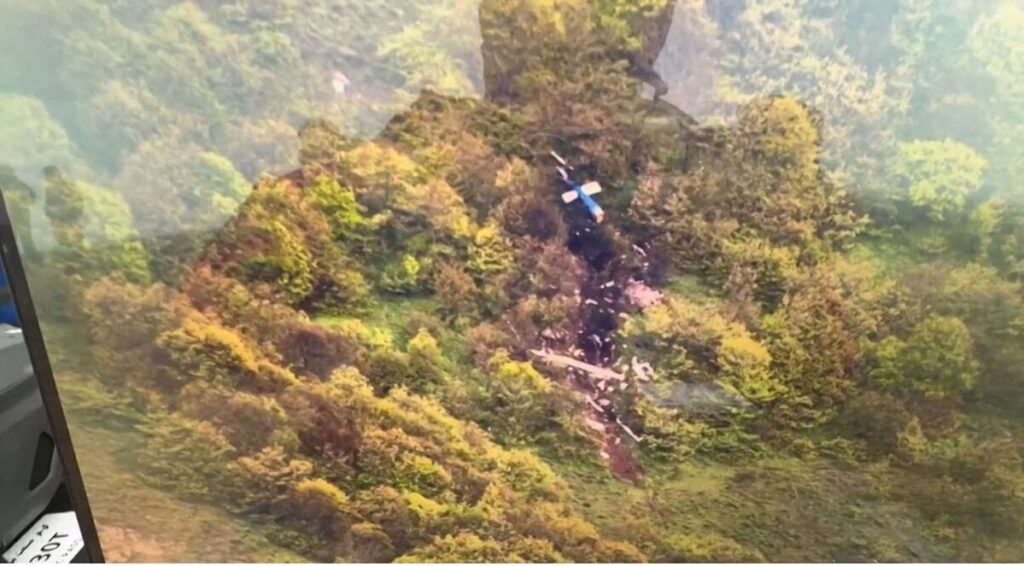In a tragic turn of events, Iranian President Ebrahim Raisi has died following a helicopter crash on May 19, 2024. The crash has sent shockwaves through Iran and the international community, as Raisi was not only a pivotal figure in Iranian politics but also a symbol of the country’s current ideological and political direction.

The Incident
On that fateful day, President Raisi was traveling from Tehran to Mashhad for a scheduled meeting with local officials and religious leaders. According to official reports, the helicopter encountered severe technical difficulties shortly after takeoff. Despite the best efforts of the pilot and crew, the aircraft lost control and crashed in a mountainous region near the city of Semnan.
Rescue teams were dispatched immediately, but the rough terrain and inclement weather hampered their efforts. By the time they reached the crash site, it was too late. All on board, including President Raisi and his close aides, were confirmed dead.
A Nation in Mourning
The news of President Raisi’s death has plunged Iran into a state of mourning. Supreme Leader Ayatollah Ali Khamenei declared three days of national mourning, emphasizing the profound loss for the country. Vigils and memorials have sprung up across the nation, with thousands gathering to pay their respects.
In a televised address, Ayatollah Khamenei praised Raisi’s dedication to the Islamic Republic and his unwavering commitment to the principles of the revolution. “President Raisi was a true servant of the people,” he said. “His loss is a tragedy not only for his family but for all of Iran.”
The Man Behind the Presidency
Ebrahim Raisi, 63, was a conservative cleric and former judiciary chief before being elected president in 2021. His presidency marked a continuation of hardline policies, with a strong focus on upholding the values of the 1979 Islamic Revolution. Raisi was known for his staunch stance against Western influence and his advocacy for Iran’s nuclear program, which he defended as a sovereign right.
Before his presidency, Raisi had a long career in the judiciary, where he earned a reputation for his strict interpretation of Islamic law. His tenure as the head of the judiciary was marked by a crackdown on corruption and dissent, earning him both praise and criticism.
Raisi’s election in 2021 was seen by many as a consolidation of power by the conservative factions within Iran. His victory came amid widespread disillusionment with the moderate administration of his predecessor, Hassan Rouhani, particularly in the wake of the U.S. withdrawal from the Iran nuclear deal and the subsequent economic hardships.
International Reactions
The international response to Raisi’s death has been mixed. While many countries expressed condolences, the reactions reflect the complex and often strained relations Iran maintains with the global community.
U.S. President Joe Biden offered condolences to the people of Iran, stating, “Despite our differences, we recognize the deep sorrow this tragedy brings to the Iranian people.” However, he also reaffirmed the U.S. commitment to addressing Iran’s nuclear program and regional activities.
Russian President Vladimir Putin and Chinese President Xi Jinping, both allies of Iran, extended their sympathies and praised Raisi’s leadership. “President Raisi was a steadfast partner in our efforts to promote stability in the region,” said President Putin in a statement.
European leaders, while offering their condolences, reiterated the importance of dialogue and diplomacy with Iran, particularly in the context of the nuclear negotiations which have been at a standstill.
The Future of Iran
With President Raisi’s sudden passing, questions about Iran’s political future have arisen. The immediate focus will be on appointing an interim president, a process that involves both the Supreme Leader and the Assembly of Experts. Potential successors are already being speculated upon, with figures such as the current Speaker of the Parliament, Mohammad Bagher Ghalibaf, and Vice President Mohammad Mokhber being mentioned as likely candidates.
The death of Raisi also comes at a critical juncture for Iran, both domestically and internationally. Domestically, Iran faces significant economic challenges, exacerbated by ongoing sanctions and internal political strife. Raisi’s administration had been navigating these issues with a firm hand, and his successor will inherit the daunting task of continuing this legacy.
On the international stage, Iran’s relations with the West, particularly regarding the nuclear deal, remain a pivotal issue. Raisi’s hardline stance had made negotiations difficult, and it remains to be seen whether his successor will adopt a more conciliatory approach or continue on the same path.
The untimely death of President Ebrahim Raisi marks a significant moment in Iranian history. As the nation mourns, the future remains uncertain. The leadership vacuum left by Raisi’s passing presents both challenges and opportunities for Iran. How the country navigates this critical period will have profound implications for its domestic stability and international relations. As the world watches, the resilience and unity of the Iranian people will undoubtedly be put to the test.

1 thought on “Tragedy Strikes: Iranian President Ebrahim Raisi Dies in Helicopter Crash”